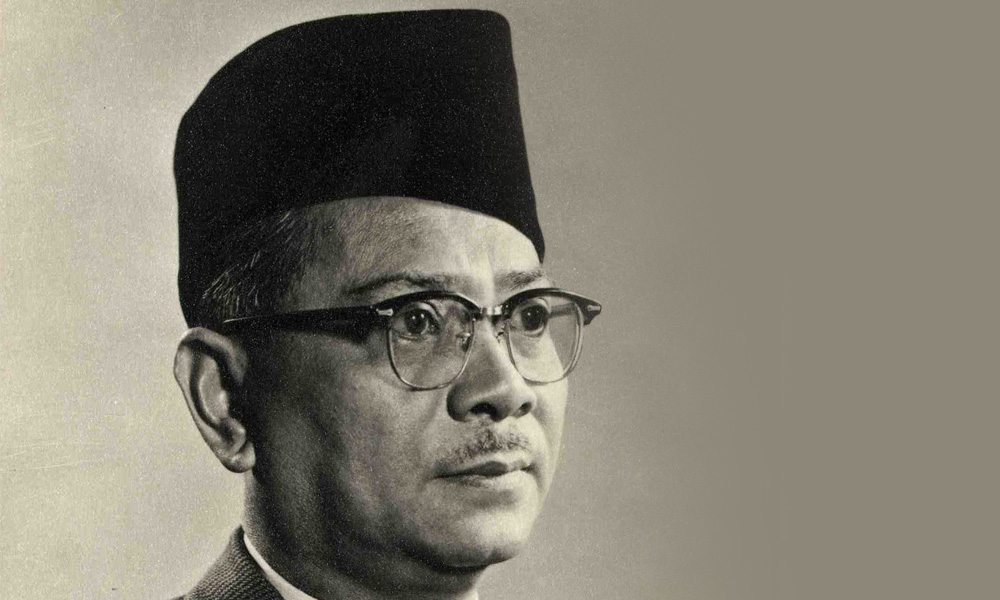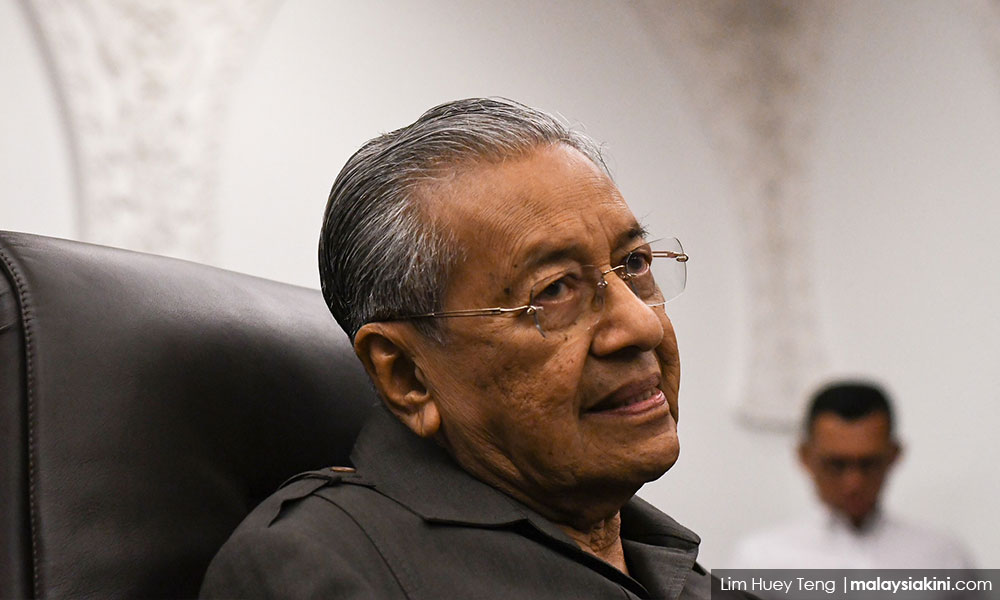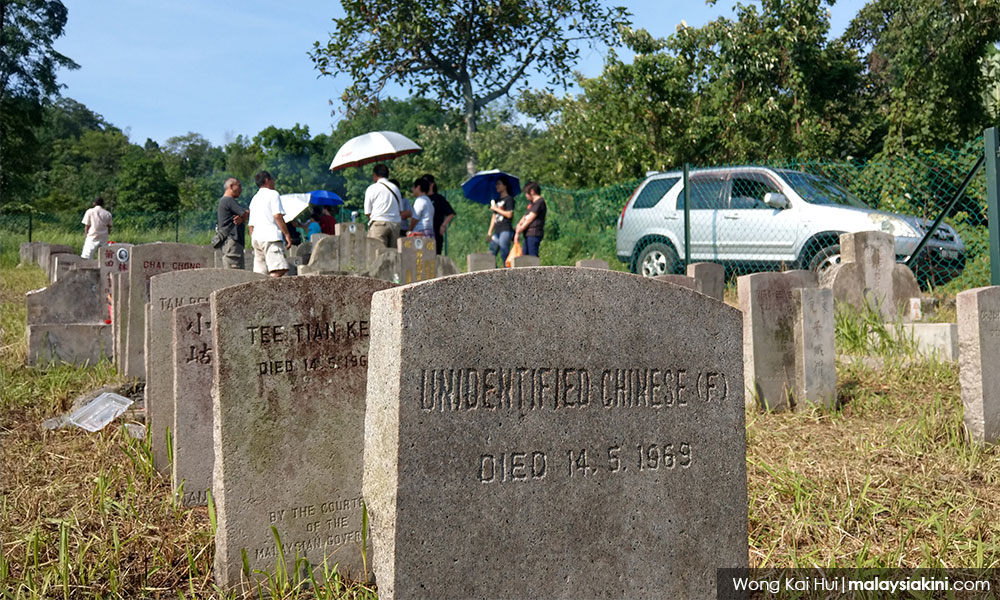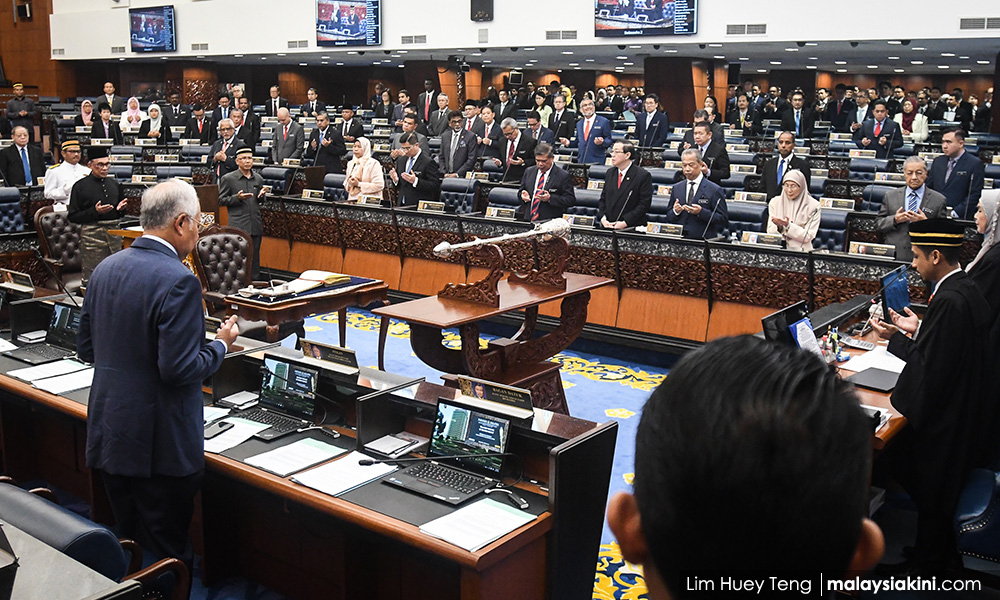
As the 62nd anniversary of Merdeka is upon the nation, some reflection on its past will not be remiss.
History repeats itself and nowhere is this more evident than in Malaysia. Worse things have happened to this unique multiracial country which remains vulnerable to betrayals, extremism and political upheavals.
Learning from history helps people avoid repeating past mistakes, especially those foisted upon a nation by unprincipled leaders.
Former minister Zaid Ibrahim is commendable for honing in on the importance of 'core principles', not 'political pragmatism', which is a euphemism for promise-breaking and treachery.
Leaders either leave toxic legacies or success stories. They are only as potent as the support given to them by the people.
The big lesson to take away from the country’s history - which is itself one long series of political betrayals - is to never support a conniving and dishonest leader.
Sadly many have a short memory and others have to remind them.
Tunku Abdul Rahman, Malaysia’s first prime minister, promised the Merdeka generation a new and free country after Aug 31, 1957, the Malayan independence day.

At our school assembly some time in 1963, at the Tunku's alma mater, the Penang Free School, he urged us to study hard, make something of our lives and take our places as leaders of the new nation.
He was sincere.
Sadly, however, when it was time for us to do that, Malaysia was a different country and the Tunku had been betrayed and deposed.
Many non-Malays felt betrayed by their government but you could not complain. In those days, a criticism of the government was construed by the Malays as an attack on them.
Years later, the Malays had their experience of betrayal. It was their turn to complain and the taboo was broken. It was not taboo for anyone to criticise the government. Hence 'Reformasi' became a catchcry of the nation involving all races.
Poetic justice
More years later, Dr Mahathir Mohamad, ironically, the previous target of the people's disaffection, marginalised and humiliated by Najib Abdul Razak, came out of retirement and became a juggernaut to oust his protege.
According to Mahathir, Najib was 'corrupt' and the then 92-year-old reportedly said, “I feel betrayed”. That was before GE14.

Was it poetic justice that Mahathir was he getting a taste of his own medicine?
The Tunku died at the height of Mahathirism. He felt Mahathir had become a dictator and criticised him openly in his 'As I See It' column in The Star newspaper during the early 1980s.
There was no love lost between the two Malay politicians. Looking at it objectively and with hindsight, the Tunku was probably right.
A dictator need not always have to be forcefully violent, like Iraq's Saddam Hussein. He can just be self-willed and strong-willed, always making the decision, demanding the final say, having things 'my way' regardless of the opinions and feelings of others and often wiser counsel.
Mahathir messed up the judiciary and other public institutions and wasted a lot of public money on his failed pet projects. Granted, he also did modernise the economy despite some costly flops.
The late Barry Wain has done an excellent job and documented a 'must read' book titled Malaysian Maverick - Mahathir Mohamad in Turbulent Times. Wain spent 40 years as a journalist in the region. His analysis of his subject is true and fair.
Mahathir was the perceived 'hero' of GE14 but has since lost his 'halo' and the people, their hope of radical change.
Business as usual, Mahathir-style, will be a disastrous repeat of history.
A Malaysia without corruption
With the formation of Malaysia on Sept 16, 1963, the country was on track to succeed.
The Tunku made an error of judgement and kicked Lee Kuan Yew and Singapore out of Malaysia in 1965. Lee must have felt bitterly betrayed as he wept publicly on television and the rest is history.

Tunku was popular with all the races but not the 'ultras' from his own race and political party who later plotted his ouster. Moderation went out with the Tunku.
Meanwhile, Singapore went on to be a developed nation, focused on the development of all races. Meritocracy ruled the PAP government, and Malaysian talents and labour flowed there. Singapore was on the rise, on the fast lane.
Meanwhile, Malaysia was on the slow lane. The 'ultras' - that group of ambitious, arrogant and aggressive Malays - eventually got rid of the Tunku.
Mahathir was instrumental in the Tunku's downfall, precipitated by an open letter to the Tunku in 1969 unfairly blaming him for May 13.
False accusations, poison-pen letters, malicious publications, sordid sex videos and false rumours are the popular political weapons of destruction.
Seeds of extremism
While religion intensified, political morality declined. The government became more corrupt.
The seeds of extremism were sown. May 13, 1969, saw bloodshed largely in Kuala Lumpur, the result of a political plot fueled initially by false rumours.
The murderers were our neighbours, not aliens, and the plotters were those we trusted to protect us. It was the day politicians betrayed their country and countrymen.

A memorial to the innocent victims and official damnation of the 'criminals' would not be remiss, lest we forget. Let it be a 'Love One Another' monument.
A monument of shame will not bring back the lost lives, but justice needs vindication in documenting the real culprits behind May 13.
Inequality and unequal opportunities are not fair, but soon became Malaysian political norms.
My late relative in the 1960s held the number two post in a government department and could not break through the racial glass ceiling to the top position, though he was a King's scholar.
Yes, race did matter then, even more so now and it is the monkey on the nation's back, the millstone around the necks of race-centric political parties, NGO groups and their leaders.
Race abuse is the nation's curse - anathema to the new nation, not to mention Islam. But did the leaders after the Tunku care?
They pushed the race cart but peddled the wares of multiracialism. Platitudes and political humbuggery were employed in the art of national deception.
The lessons of history
History teaches people not to blindly trust the fork-tongued politicians.
Their pledges mean nothing. The one who says 'I am the leader of all' is a liar. The one who says 'promises are guidelines' is a promise-breaker. The one who says, 'I am Malay first' is telling the truth, albeit somewhat misguided.
In his memoirs, Lee related the 'envelope' incident, when he got the Tunku to sign on the back of an envelope additional terms of the Malaysia Agreement because of the Tunku's 'elastic memory'.
Next time a leader makes a promise, make him put it in writing.
Multiracialism was exploited for government tourism adverts, and not for all BN government policies and top positions.
When will 'rule of law' Mahathir make religious slander, in tandem with fabricated rumours and false accusations, a crime?
Who does not remember Umno leaders threatening to defend the Malays with blood and with an upraised and unsheathed keris? Who was the imaginary threat then?
Setting an example
Malaysians don't need politicians to offer them more advice on racial harmony. Leaders must set the example. They should stop betraying the victims of racism with a kiss like Judas’.

Fortunately, such a government is no more, and as Muslims would say, “It is Allah's will”. But the virus is still much active and dangerous to public health.
Racists should spend a more profitable time doing a jihad of soul-cleansing, than harbouring evil thoughts of ethnic cleansing.
In Tunku's time, those who openly and mischievously upset the race relations cart would have been locked up. After all, he had sacked Mahathir from Umno for his 'ultra' ideas.
Racism was the sickness and Mahathir fanned it with his now dated book, The Malay Dilemma, and the sick nation has never been able to find a cure for it.
Alas, history repeats itself too often for the country's good. The country suffers from a political cycle of betrayals. The folly is recycling leaders and with them their hangups.
So when 11 Umno frogs joined Pakatan Harapan after GE14, a PKR leader criticisedMahathir's betrayal. Let's hope history will not repeat itself, like how Semangat 46 members rejoined Umno, if people recall.
Mahathir, at 94 years old, has done enough. It is cruel to keep him in Putrajaya, workaholic or not. Soon he will meet a nemesis he can not vanquish. He must be wise enough to know there is life after Najib and more urgent things to do than running a government.
It is a pity there is no place for PKR president Anwar Ibrahim in Mahathir's government. If Malaysians feel a sense of deja vu, it is understandable. Let us hope history will not repeat itself.
In time, Anwar will take his rightful place and restore the lost hope of the true believers of reform in a New Malaysia. Lest we regret.
Oh yes, happy Merdeka.
STEVE OH is an author and composer of the novel and musical Tiger King of the Golden Jungle. He believes good governance and an engaging civil society are paramount to Malaysia being a unique and successful nation. - Mkini



No comments:
Post a Comment
Note: Only a member of this blog may post a comment.